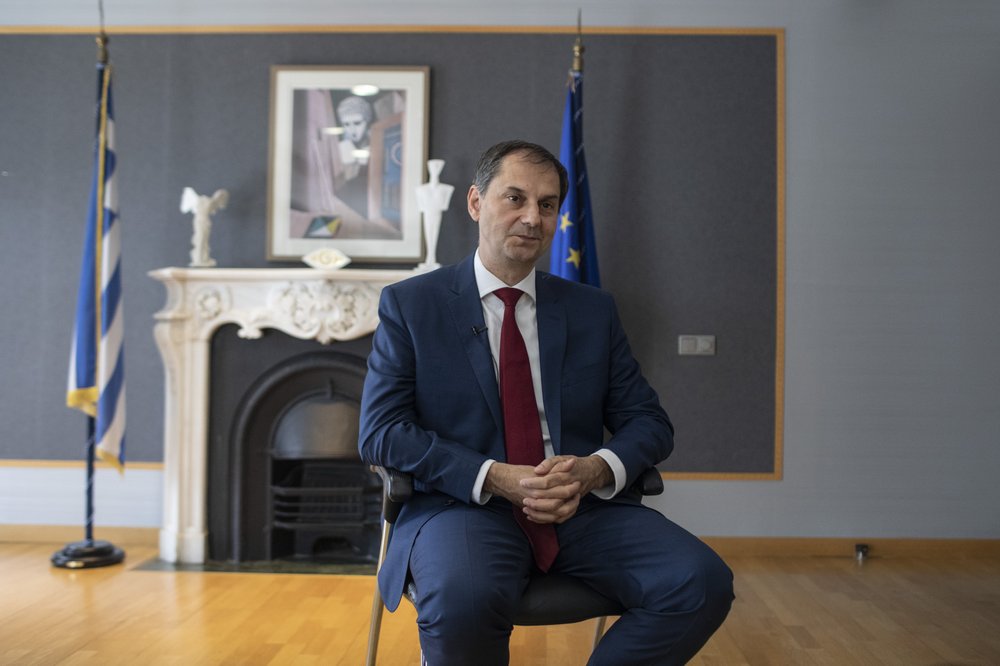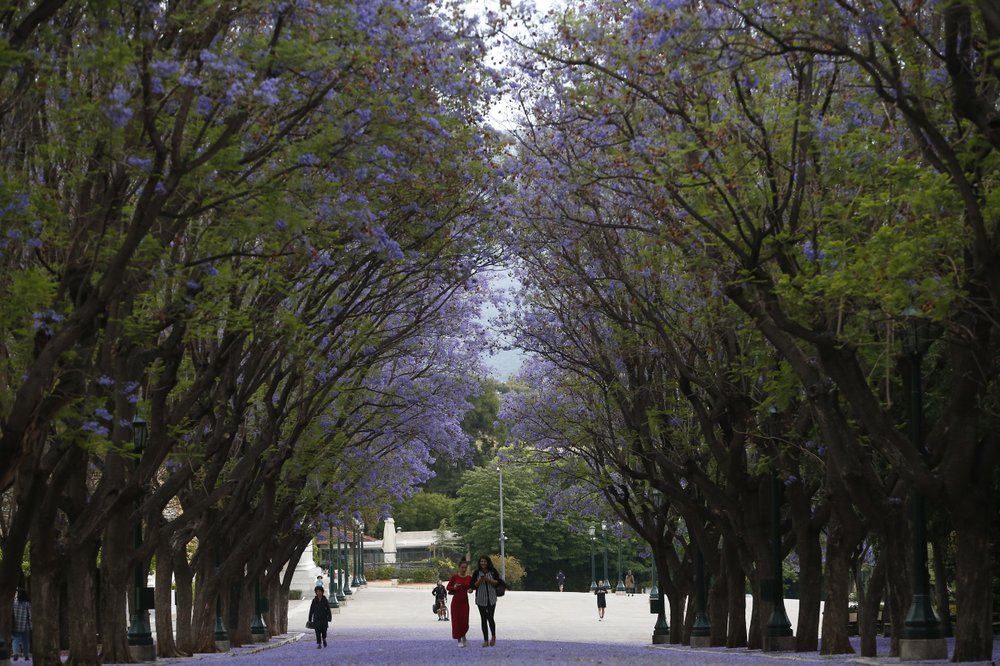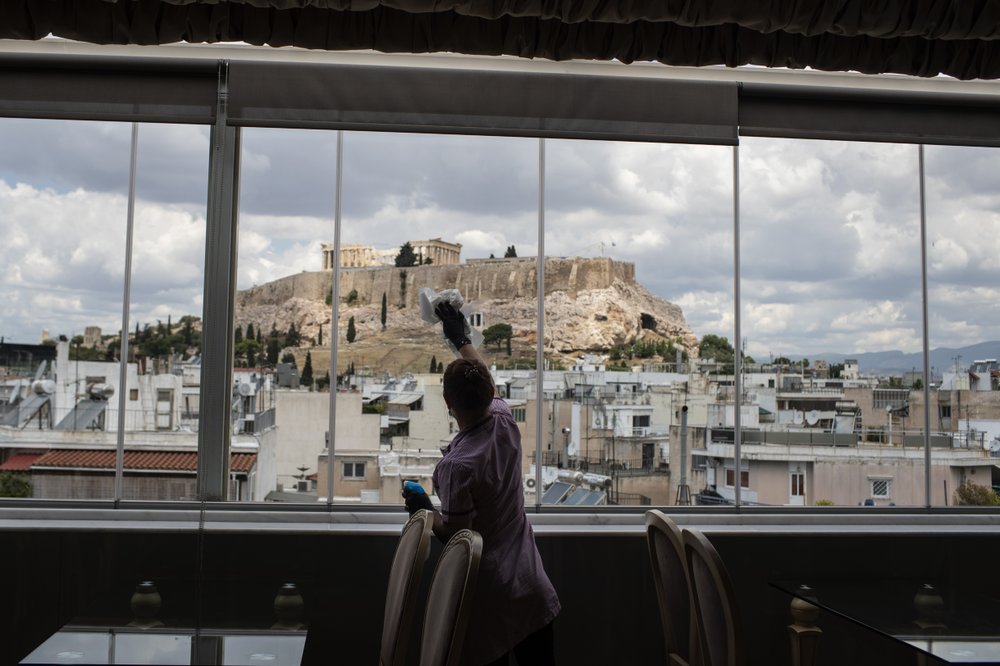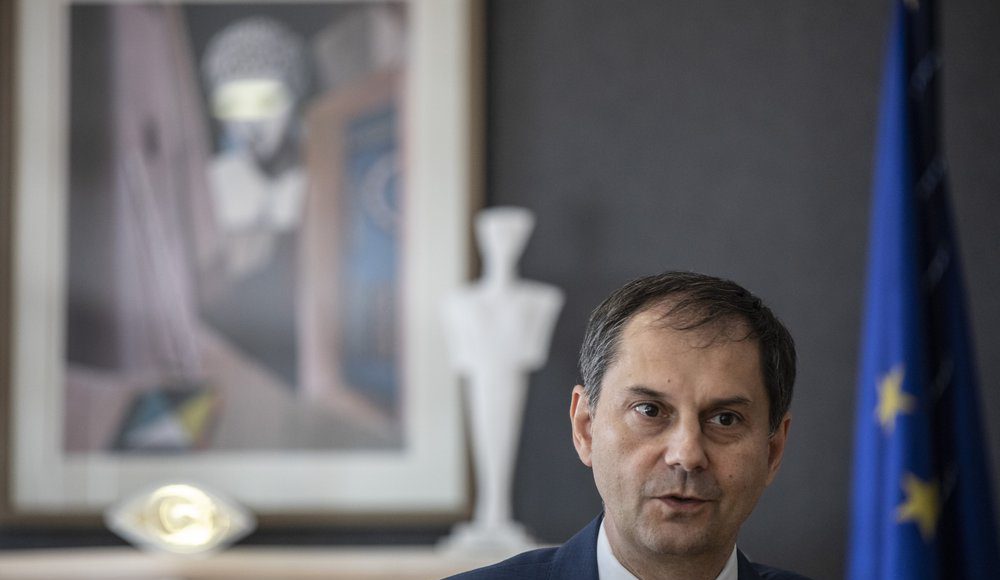Greece is preparing to admit tourists from all over the world this summer but will be adhering to the advice of health experts to ensure it remains a safe destination in terms of coronavirus exposure, the country’s tourism minister said Tuesday.
“Every tourist is welcome. … This has been a very stressful year for everyone, and the refilling of the batteries is the call of the day,” Tourism Minister Harry Theoharis said. “But of course, we will have to wait for the experts, for the international bodies, to say when this is safe to do so,”
“We don’t want to put at risk the people that visit us. And, of course, our population,” Theoharis told The Associated Press in an interview.
The government imposed a lockdown early in Greece’s coronavirus outbreak, a move credited with holding infections to a level considerably lower than many other parts of Europe. Greece had a total of just over 2,900 confirmed cases and 179 deaths as of Tuesday, with no new virus-related deaths recorded in the previous 24 hours. Eleven people remained intubated in intensive care units.

Lockdown restrictions have been gradually eased to the point where life is almost back to normal. But the country is heavily dependent on tourism, and the government has been eager to attract foreign visitors and help shore up the economy, which is only just emerging from a brutal decade-long financial crisis that wiped out a quarter of the GDP
Authorities are now faced with the delicate balancing act of promoting Greece as a safe, attractive destination while ensuring that visitors don’t trigger a new outbreak.
One illustration of the gamble involved came Tuesday, when authorities announced that 12 passengers on a Monday flight from Doha, Qatar, had tested positive. Greece’s Civil Protection Agency said it was suspending flights from Qatar until June 15.
Currently, all arriving passengers to Greece are required to undergo tests and to pend the night in a designated hotel until the results come through.

“The point is not to stop every economic activity in order to help the health situation, but it’s actually to find this balance, and for that, you need your health experts to guide you,” Theoharis said.
One of those health experts, epidemiologist Gkikas Magiorkinis, told the AP that given current trends, the coronavirus outbreak in Greece was “in a trajectory of elimination. If we did not have other imported cases, it would be a matter of a month at most” for the virus to be stamped out in the country.
But new cases will almost certainly arrive when Greece opens to tourists, he said.
“Yes, we are worried because we know that globally the epidemic is a result of people moving around the world,” Magiorkinis said. “The question is how fast we will be able to contain the incoming cases. Because it will happen. There is no question that we will have incoming cases.”

The government has outlined a two-part schedule for jump-starting tourism. As of June 15, visitors will be able to fly into Athens or the northern city of Thessaloniki. Direct international flights to regional airports, including on islands, will be allowed from July 1.
Greece last week announced that visitors from 29 countries would be subject to random coronavirus testing and no quarantine, rather than the compulsory tests for every passenger and quarantines that currently apply. The announcement angered some nations, including neighboring Italy, that were not included.
However, the government later clarified the measures referred to flights originating from specific airports rather than countries. Greece, it said, is basing its decisions on a European Aviation Safety Agency list of airports with high risk of coronavirus transmission.
Visitors can still fly to Greece from those airports, but will be subject to compulsory testing, and either a seven-day self-quarantine period if they test negative for coronavirus, or a 14-day supervised quarantine if they are found positive.
“Perhaps it was a misunderstanding that we’re blocking entire countries or anything of the sort. This is not what we intended to convey,” Theoharis said.
He said the European agency’s list of high-risk airports was subject to change and airports could be removed as their regional public health situations improve. For example, Rome’s international airport is not on the EASA list, he noted.
“We’re not actually blocking countries, but airports. And, you know, that shows that this is not about specific passports or nations,” Theoharis said.
Sourced By: Associated Press



